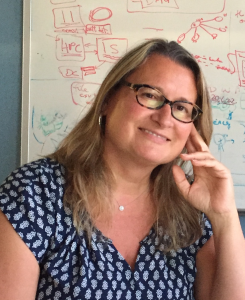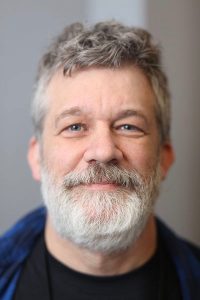
KEYNOTE SPEAKER
Yolanda Gil, Spatial Sciences Institute and Department of Computer Science, University of Southern California;
Title: Artificial Intelligence for Integrated Modeling
Abstract: Artificial Intelligence (AI) has enormous potential to provide fundamental new capabilities for geosciences and for environmental research in particular. Since its early days, AI has made strong contributions to diverse areas in science through search and planning, machine learning, robotics, and knowledge representation. Major geoscience challenges are presented by complex phenomena with uncertain, intermittent, sparse, multi-resolution, and multi-scale data that require new AI approaches. In this talk, I will discuss a research agenda for significantly more powerful approaches to sensing and data collection, data integration, modeling, and decision making that require a new generation of AI systems with substantial scientific knowledge and user context. I will give examples from our ongoing work in new AI capabilities for interdisciplinary model integration spanning climate, hydrology, agriculture, and socioeconomic modeling. It typically takes many months and even years to create valid end-to-end simulations, as the different models need to be configured in consistent ways and generate data that is usable by other models. We are developing a range of AI techniques in order to automate significant aspects of data ingestion from a variety of sources (particularly remote sensing data), data preparation, and model set up.
Bio: Dr. Yolanda Gil is Director of Knowledge Technologies and Associate Division Director at the Information Sciences Institute of the University of Southern California, and Research Professor in Computer Science and in Spatial Sciences. She is also Associate Director of Interdisciplinary Programs in Informatics. She received her M.S. and Ph. D. degrees in Computer Science from Carnegie Mellon University, with a focus on artificial intelligence. Her research is on intelligent interfaces for knowledge capture and discovery, which she investigates in a variety of projects concerning knowledge-based planning and problem solving, information analysis and assessment of trust, semantic annotation and metadata, and community-wide development of knowledge bases. Dr. Gil collaborates with scientists in different domains on semantic workflows and metadata capture, social knowledge collection, computer-mediated collaboration, and automated discovery. Dr. Gil has served in the Advisory Committee of the Computer Science and Engineering Directorate of the National Science Foundation. She initiated and chaired the W3C Provenance Group that led to a community standard in this area. Dr. Gil is a Fellow of the Association for Computing Machinery (ACM), and Past Chair of its Special Interest Group in Artificial Intelligence. She is also Fellow of the Association for the Advancement of Artificial Intelligence (AAAI), and was elected as its 24th President in 2016.

Charlie Catlett, Senior Computer Scientist, Argonne National Laboratory;
Title: Understanding Cities through Embedded AI
Bio: Charles Catlett is a Senior Computer Scientist at the U.S. Department of Energy’s Argonne National Laboratory and a Senior Fellow at the University of Chicago’s Mansueto Institute for Urban Innovation. His current research focuses on urban data analytics, urban modeling, and the design and use of sensing and “edge” computing technologies embedded in urban infrastructure. He is the principal investigator of the NSF-funded “Array of Things” (AoT), an experimental urban infrastructure to measure the city’s environment with sensors and embedded (“edge”), remotely programmable artificial intelligence hardware. Operating at over 120 locations in Chicago, AoT is expanding to 200 during 2019. Catlett served as Argonne’s Chief Information Officer from 2007-2010. Before joining UChicago and Argonne in 2000, he was Chief Technology Officer at the National Center for Supercomputing Applications at the University of Illinois at Urbana-Champaign. From NCSA’s founding in 1985 he participated in the development of NSFNET, one of several early national networks that evolved into what we now experience as the Internet. During the exponential growth of the web following the release of NCSA’s Mosaic web browser, his team developed and supported NCSA’s scalable web server infrastructure. Charlie founded the Urban Center for Computation and Data at the University of Chicago in 2012, was recognized as one of Chicago’s “Tech 50” technology leaders by Crain’s Chicago Business in 2014, and nationally as one of “25 Doers, Dreamers & Drivers” of 2016 by Government Technology magazine. He is a Computer Engineering graduate of the University of Illinois at Urbana-Champaign.
